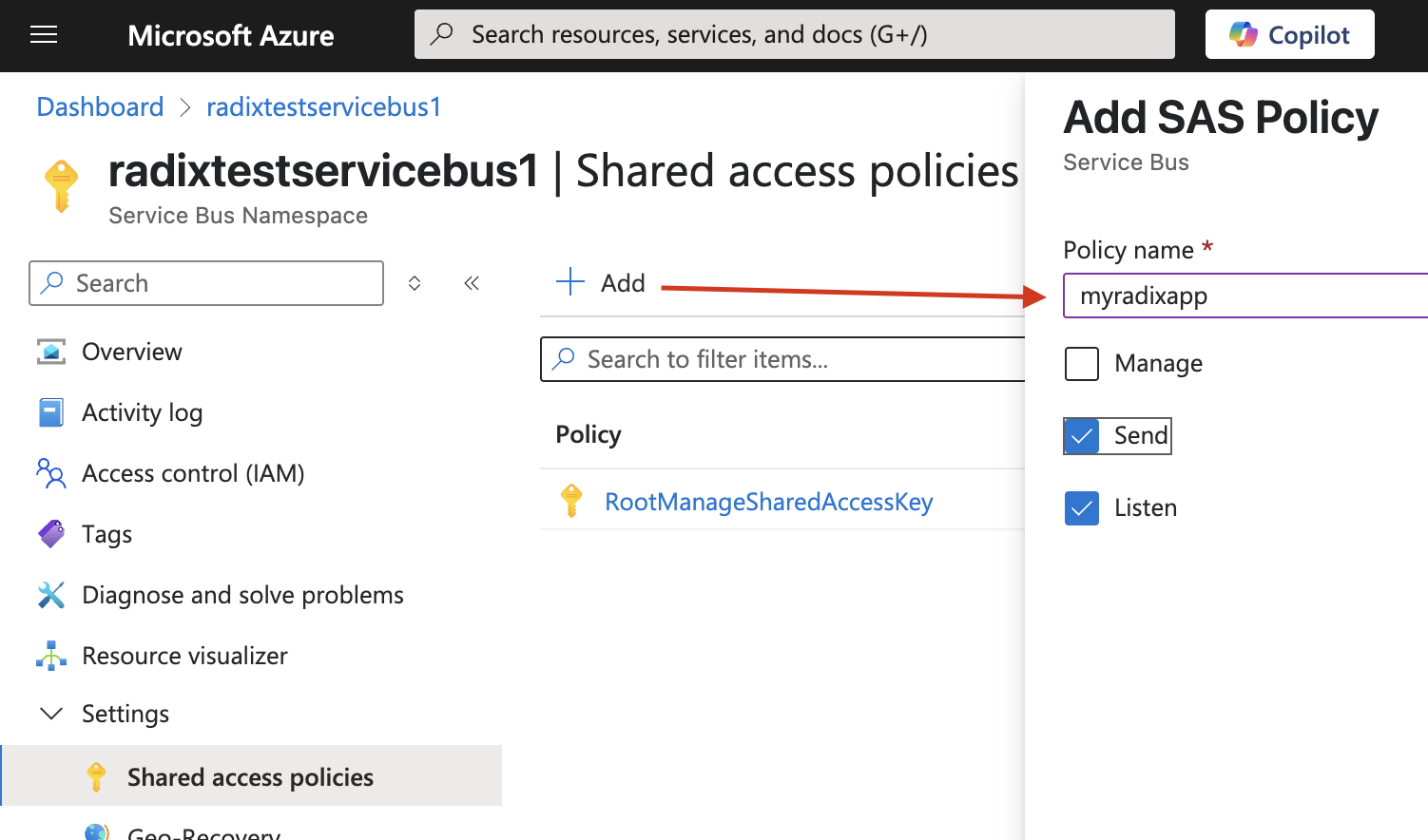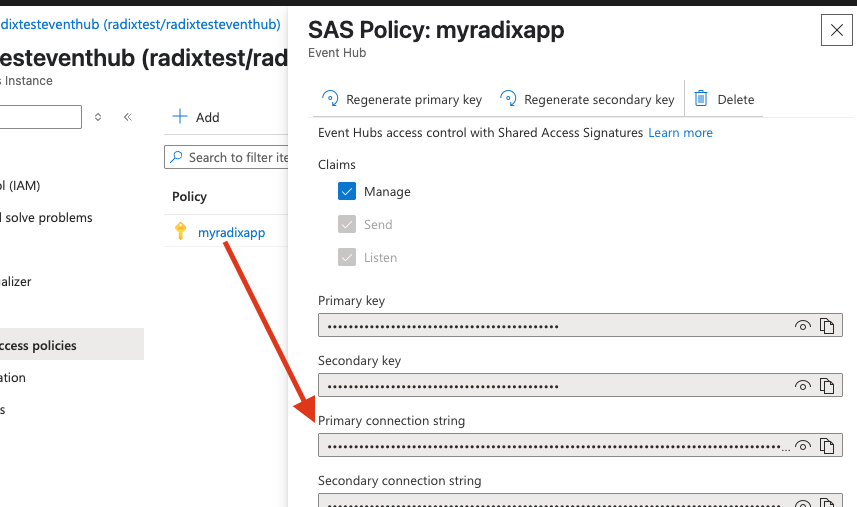Azure Event Hub authentication
Authenticate with Workload Identity
When access to your Event Hub is provided to Keda, any other Radix applications can scale their components based on your queue! Use authentication with connection string to avoid this.
We are hoping on improving this - https://github.com/kedacore/keda/issues/5630
ClientID to a managed identity should be provided, that contains a federated credential with following properties:
Federated credential scenario: Kubernetes Service Account
Cluster Issuer URL: https://northeurope.oic.prod-aks.azure.com/00000000-0000-0000-0000-000000000000/00000000-0000-0000-0000-000000000000/
Namespace: keda
Service Account: keda-operator
Cluster Issuer URL - current values can be found in Radix console About page in the Cluster OIDC Issuer URLs property.
Cluster Issuer URLs can be changed during cluster migration, please watch the Slack channel #omnia_radix for updates.
spec:
components:
- name: backend
horizontalScaling:
minReplicas: 0
maxReplicas: 2
triggers:
- name: azure-eh
azureEventHub:
eventHubName: my-event-hub
eventHubNamespace: my-event-hub-namespace
accountName: my-storage-account
container: my-blob-container
authentication:
identity:
azure:
clientId: 00000000-0000-0000-0000-000000000000
Read more about Azure workload identity
Authenticate with connection string
spec:
components:
- name: backend
secrets:
- EVENT_HUB_CONNECTION
- STORAGE_CONNECTION
horizontalScaling:
minReplicas: 0
maxReplicas: 2
triggers:
- name: azure-eh
azureEventHub:
container: my-blob-container
eventHubConnectionFromEnv: EVENT_HUB_CONNECTION
storageConnectionFromEnv: STORAGE_CONNECTION
storageConnectionFromEnv - Name of the environment variable your deployment uses to get the connection string of the Azure Event Hub namespace. This connection string can be Event Hub namespace or instance scope.
Namespace connection string
To get the connection string for your Event Hub namespace, follow these steps:
-
Go to the Azure portal.
-
Navigate to an Event Hub namespace.
-
In the left-hand menu, select "Shared access policies".
-
Select the policy to be used or create a new one with required claims: Manage, Send and/or Listen.
-
Copy the "Primary Connection String" or "Secondary Connection String".
-
Store the connection string in a Radix secret or Azure Key Vault secret of a component, e.g.
EVENT_HUB_CONNECTION.This connection string has the following format:
Endpoint=sb://<sb>.servicebus.windows.net/;SharedAccessKeyName=<key name>;SharedAccessKey=<key value>It does not have
EntityPathproperty, so it can be used for all Event Hub instances in the namespace. -
Specify an instance name in
eventHubNameor in an environment variable, referred byeventHubNameFromEnvproperties.
Instance connection string
To get the connection string for an Event Hub instance, follow these steps:
- Go to the Azure portal.
- Navigate to an Event Hub namespace.
- Select a specific Event Hub instance in "Entities/Event Hubs" list.
- In the left-hand menu, select "Settings/Shared access policies".

- Select the policy to be used or create a new one with required claims: Manage, Send and/or Listen.
- Copy the "Primary Connection String" or "Secondary Connection String".

- Store the connection string in a Radix secret or Azure Key Vault secret of a component, e.g.
EVENT_HUB_CONNECTION.
This connection string has the following format:
Endpoint=sb://<sb>.servicebus.windows.net/;SharedAccessKeyName=<key name>;SharedAccessKey=<key value>;EntityPath=<hub-name>
It includes the EntityPath property, therefore specifying eventHubName or eventHubNameFromEnv is not required.